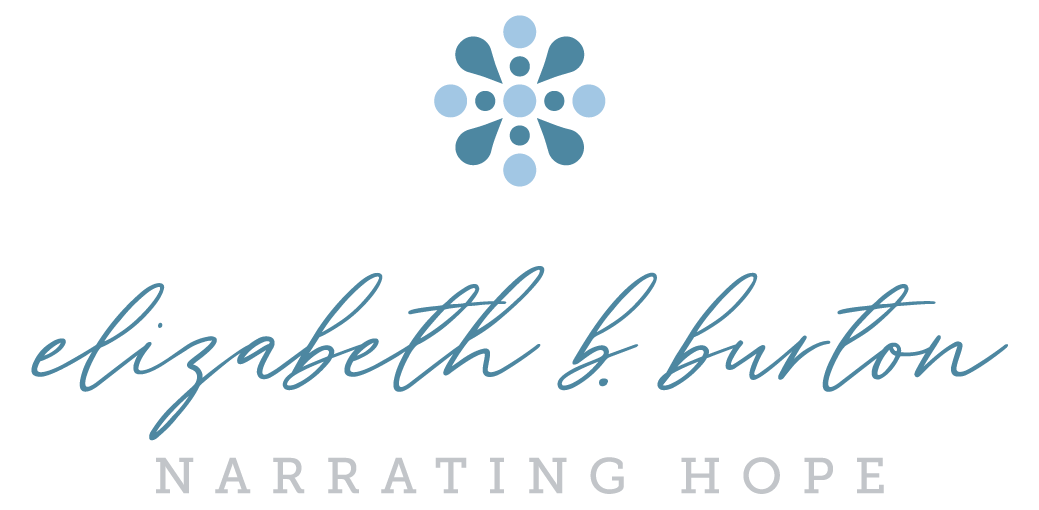Self-Talk: Three Ways to Move Towards a New Narrative and the Tools to Support You
As we transition to a New Year, it can bring about a lot of reflection on how we are doing and what we hope for. In this posture of reflection, we often think about external things, yet there is goodness in reflecting on our interior-- the more foggy, veiled interior life that we do not talk about much and yet holds such power.
All of us have a voice in our head. We can call this voice a lot of things, but some of the common terms are “self-talk,” “inner critic,” and “inner voice.” It’s the voice that continues to play almost like an old cassette tape, looping over and over again or like a playlist set to repeat.
This voice holds so much power, power to lift us up and encourage ourselves with compassion to keep pressing on, believing that we are worthy and of value. This voice also holds power to keep us small, quiet, believing ourselves to be insignificant, unworthy, and shame-filled.
Many times this voice is so ingrained in our cycle of thought that we don’t even recognize it as a voice other than ourselves. This voice is just what we know--the soundtrack that has become so ingrained that we hardly question it and definitely do not challenge it.
In this way, we often silently absorb the voice believing everything it tells us to be true. This is good when the voice is compassionate, grace-filled, and encouraging. Yet, often this is not the case. The voice is caustic, burning, stealing joy, and always bringing us down.
This voice may be especially loud and condemning when we are rejected, hurt, make a mistake, face our imperfection head on, and fall for a temptation.
It’s the VOICE that says things like:
You are not attractive.
You don’t deserve good things.
You are only worthy IF_____________(in a relationship with spouse or significant other, make a certain amount of money, are a certain size, etc.)
Your imperfection of mind, personality, body is unacceptable.
You can never get anything right.
You should be ashamed of yourself.
If you can relate to this dynamic of a critical voice, then take heart.
The good news is that just because this is how it has always been, does not mean that it is how it has to continue. Just because this voice has held power in your life, does not mean it always has to be so.
There is hope to break the power of this voice, to disrupt the pattern, and to claim a new way to view yourself.
How do I move towards a new narrative?
AWARENESS: Move away from the auto-pilot mode in your thinking and pay attention to what thoughts are running through your head. Above all else, begin to tune in to the narrative running through your mind. Recognize it for what it is--a true, gentle, compassionate voice OR a condemning, critical, harsh voice.
SEPARATION: When you recognize the critical voice dynamic, remind yourself that just because you think it, does not mean it is true. In this way, you begin to separate yourself from this voice.
CLAIM A NEW NARRATIVE: Focus then on reframing the narrative to what is true and more self-compassionate.
Your life has incredible value.
You are imperfect because you are human, not because you are less than.
You are completely acceptable and worthy.
Tangible Tools to Support This Process:
Write it down: Taking pen to paper helps externalize the critical voice and helps you internalize the more gentle, true voice. This can look like making a list of true affirmations and posting them somewhere where you will read them often, to help you internalize them.
Talk to Someone: Counseling may be a tangible support in claiming this more true and compassionate self-talk. When our own voice speaks to us with condemnation and criticism, it can help to have an outside voice begin to speak to us in a different way. This can go a long way in helping you to internalize this true, gentle voice.
Spiritual Life: Digging deep into what gives your life meaning is especially helpful in solidifying this new narrative, one that is filled with hope.
As we walk forward into this New Year, consider whether you are ready to claim a new voice. The work to make this shift may be gradual and feel slow at times, yet it is available to you and within your reach. In this way, you may influence greatly the kind of year you have—one that is filled with more confidence, groundedness, freedom, and peace.
Elizabeth B. Burton is a licensed professional counselor and life coach with Burton Counseling, PLLC. You can learn about Elizabeth here and about services provided here. Elizabeth also works with groups by providing workshops and speaking opportunities. Elizabeth communicates about mental health and well-being through both the Narrating Hope newsletter and podcast as well as through her writing. Elizabeth would love to connect with you and welcomes you to sign up for the newsletter, listen in to the podcast, reach out about working together, and connect on social media.

